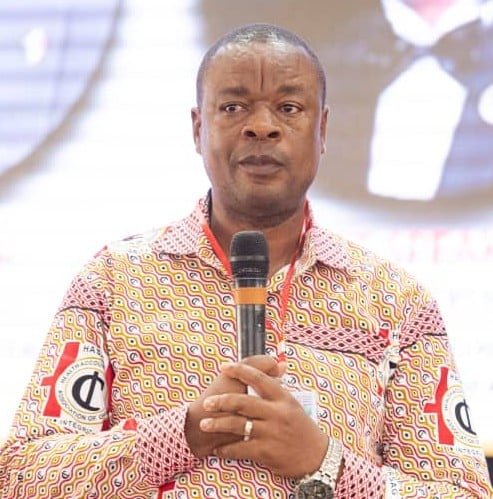The Health Accounting Staff Association of Ghana (HASAG) finds itself locked in a contentious standoff with the Fair Wages and Salaries Commission (FWSC) over stalled negotiations regarding their conditions of service. HASAG, representing the financial management professionals within Ghana’s public health sector, has issued a stark ultimatum to the FWSC, demanding the immediate resumption of negotiations by June 23, 2025. Failure to comply, they warn, will trigger “all lawful steps,” including potential nationwide industrial action. This escalating tension stems from what HASAG perceives as a deliberate attempt by the FWSC to sabotage their efforts and undermine their membership.
The crux of the dispute lies in the prolonged inactivity surrounding the negotiation process. Initiated in November 2023, the talks aimed at revising HASAG’s conditions of service have been dormant for over eight months. Despite repeated appeals from HASAG, the FWSC has remained unresponsive, effectively stalling any progress. This inaction, HASAG argues, violates the principles of good faith negotiations enshrined in the Standing Negotiating Committee (SNC) Rules, which stipulate a two-month timeframe for concluding negotiations, with a possible two-week extension. The protracted delay, they contend, is a calculated strategy to frustrate their efforts and weaken their internal cohesion.
The consequences of this impasse, according to HASAG, are already manifesting in the form of membership attrition. Several members, disillusioned by the lack of progress, have defected to the Health Services Workers’ Union (HSWU), a rival union that, despite commencing negotiations later, has successfully concluded its talks and secured financial benefits for its members. This disparity, HASAG argues, has fueled widespread agitation and unrest among their remaining members, who feel undervalued and neglected by the FWSC’s inaction. The perceived preferential treatment afforded to the HSWU has further exacerbated the situation, creating a sense of injustice and fueling the demand for immediate action.
In an effort to break the deadlock and compel the FWSC to return to the negotiating table, HASAG has taken several decisive steps. They have formally reported the FWSC to the National Labour Commission, seeking intervention and a resolution to the impasse. Simultaneously, they have appealed to the Ministries of Finance, Health, and Employment and Labour Relations, urging them to intervene and avert potential disruptions to the financial management of the public health sector. These appeals underscore the critical role HASAG members play in ensuring the smooth functioning of Ghana’s healthcare system and the potential negative consequences of prolonged industrial action.
HASAG’s frustration is palpable. The Association accuses the FWSC of “deliberate sabotage,” suggesting that the prolonged silence is a tactical maneuver to weaken their bargaining position and erode their membership base. The perceived unfairness of the situation, particularly in light of the HSWU’s successful negotiations, has fueled growing discontent within HASAG’s ranks. Members are increasingly losing patience with the lack of progress and are demanding concrete action to address their concerns.
While HASAG maintains its commitment to dialogue and a peaceful resolution, the ultimatum delivered to the FWSC carries significant weight. The June 23 deadline represents a critical juncture in the ongoing dispute. If the FWSC fails to respond positively and resume negotiations by the stipulated date, HASAG has vowed to activate “all lawful steps” to protect the interests of its members. This could include initiating industrial action, potentially disrupting the financial operations of the public health sector. The stakes are high, and the future stability of Ghana’s healthcare financial management hangs in the balance. The FWSC’s response to the ultimatum will be crucial in determining the course of events and whether the situation escalates into a full-blown industrial conflict. The clock is ticking, and the nation waits to see whether dialogue will prevail or whether the simmering tensions will boil over into disruptive action.


